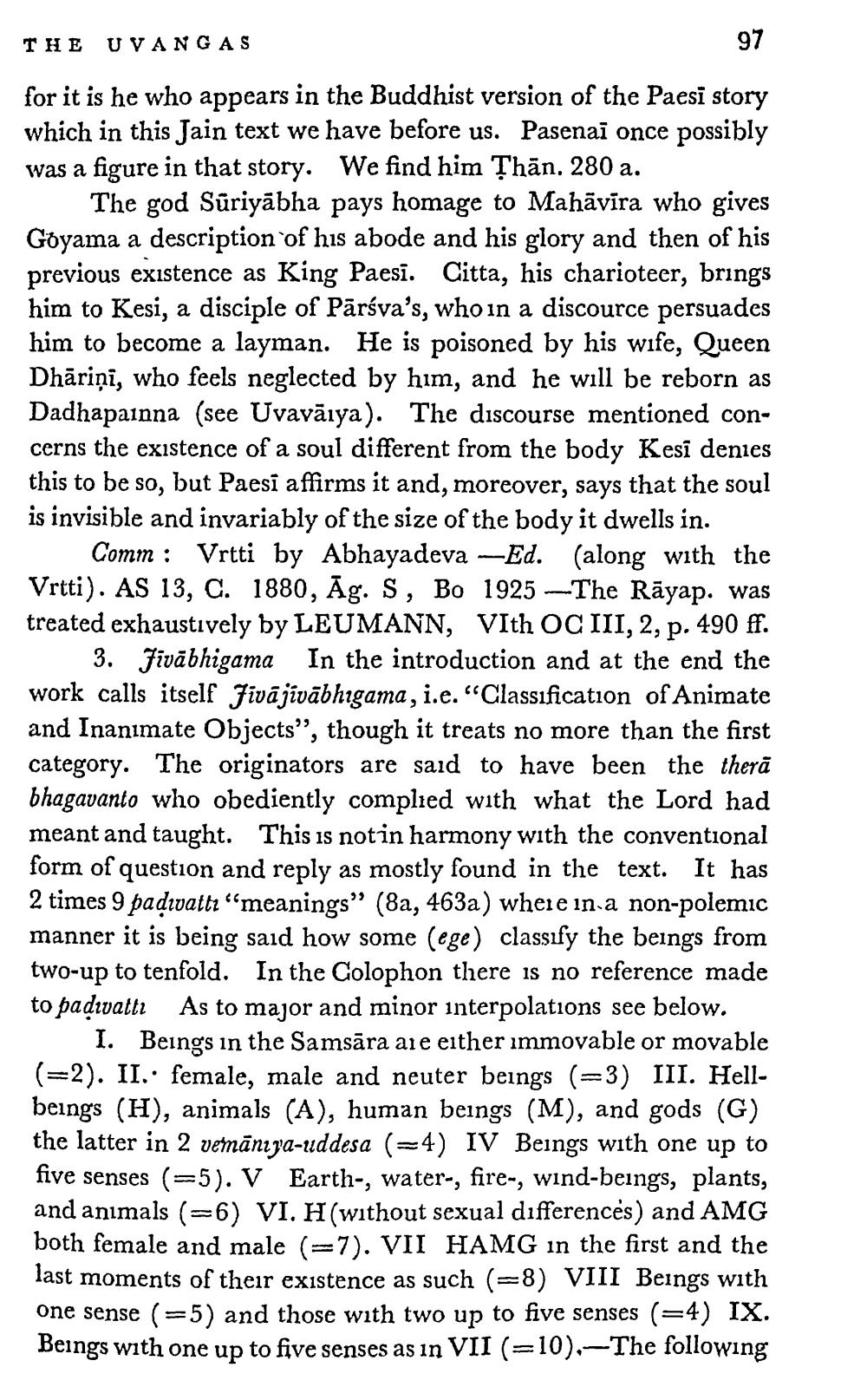________________
97
for it is he who appears in the Buddhist version of the Paesi story which in this Jain text we have before us. Pasenai once possibly was a figure in that story. We find him Than. 280 a.
The god Sûriyābha pays homage to Mahavira who gives Goyama a description of his abode and his glory and then of his previous existence as King Paesi. Citta, his charioteer, brings him to Kesi, a disciple of Pārsva's, who in a discource persuades him to become a layman. He is poisoned by his wife, Queen Dhāriņi, who feels neglected by him, and he will be reborn as Dadhapainna (see Uvavāiya). The discourse mentioned concerns the existence of a soul different from the body Kesî denies this to be so, but Paesi affirms it and, moreover, says that the soul is invisible and invariably of the size of the body it dwells in.
THE
UVANGAS
Comm: Vrtti by Abhayadeva -Ed. (along with the Vrtti). AS 13, C. 1880, Ag. S, Bo 1925 -The Rayap. was treated exhaustively by LEUMANN, VIth OC III, 2, p. 490 ff.
3. Jivabhigama In the introduction and at the end the work calls itself Jivājīvābhigama, i.e. "Classification of Animate and Inanimate Objects", though it treats no more than the first category. The originators are said to have been the thera bhagavanto who obediently complied with what the Lord had meant and taught. This is not in harmony with the conventional form of question and reply as mostly found in the text. It has 2 times 9 paḍwattı “meanings” (8a, 463a) where in a non-polemic manner it is being said how some (ege) classify the beings from two-up to tenfold. In the Colophon there is no reference made to padwatti As to major and minor interpolations see below.
I. Beings in the Samsara are either immovable or movable (=2). II. female, male and neuter beings (3) III. Hellbeings (H), animals (A), human beings (M), and gods (G) the latter in 2 vemānija-uddesa (=4) IV Beings with one up to five senses (=5). V Earth-, water-, fire-, wind-beings, plants, and animals (6) VI. H (without sexual differences) and AMG both female and male (=7). VII HAMG in the first and the last moments of their existence as such (=8) VIII Beings with one sense (5) and those with two up to five senses (=4) IX. Beings with one up to five senses as in VII (10),-The following




